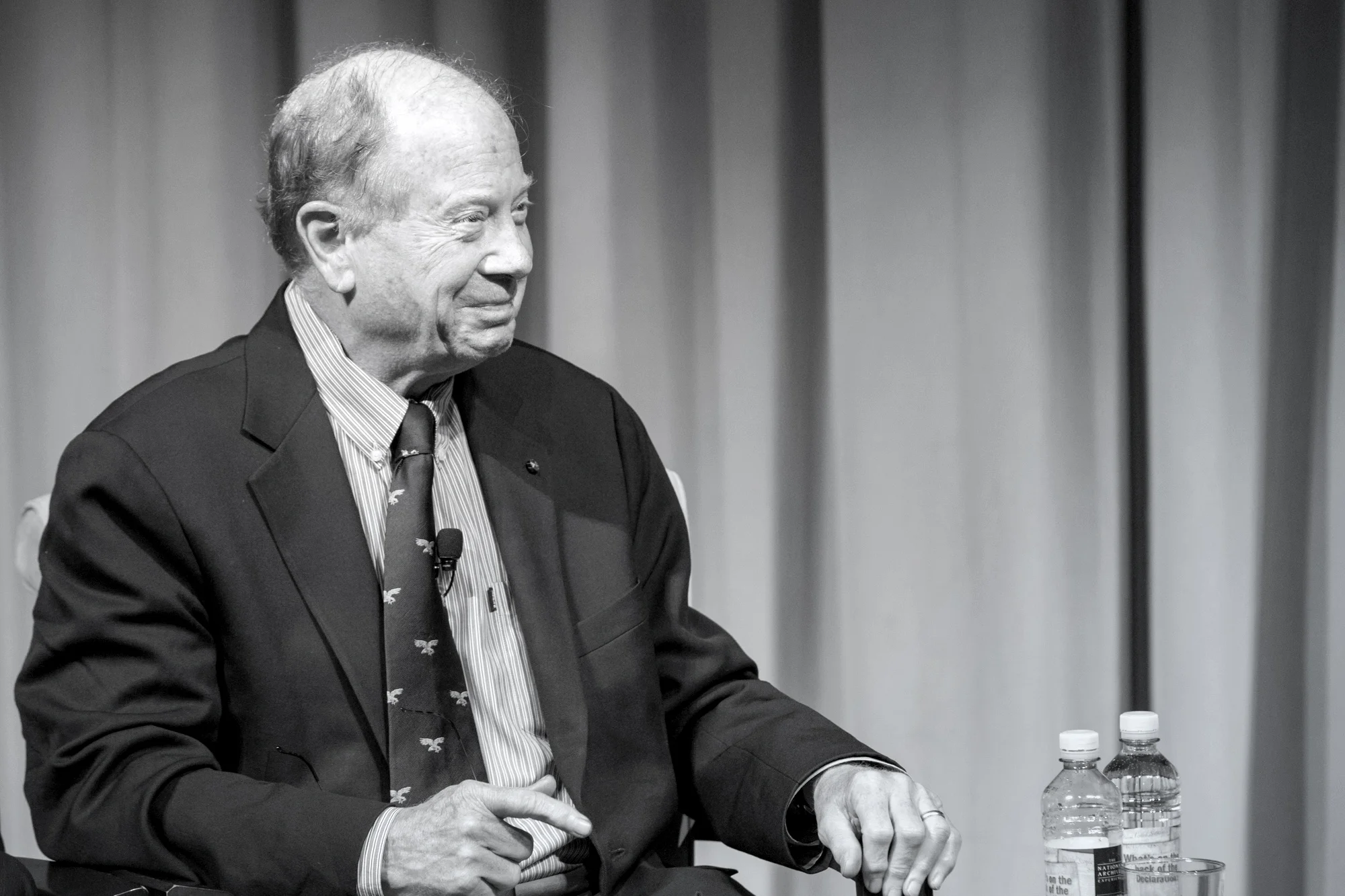I remember when I first met Joseph Ellis. It was 1996 or 1997 and we found ourselves in the editing chamber of Ken Burns’ studios in Walpole, New Hampshire. We were two of the five or so talking heads in Ken Burns’ documentary on Thomas Jefferson. We hit it off immediately, and began to provide a somewhat irreverent running commentary as we watched a rough cut of the film. Pretty soon, Ken turned to us and said, “Hey you two, knock it off or go find a coffee shop.” We felt like a couple of louts in the back of a high school history class.
I’ve read all ten of Joseph Ellis’s books. Together they form a kind of magnum opus or even an epic about what might be called The Founding. They give us an amazingly insightful, colorful, often amusing portrait of the great individuals (usually but not always men) who severed the American colonies from Great Britain, fought a long and frustrating war of national independence, and then worked together—often in harmony, more often at odds—to create a true, new American polity and culture.
To my mind, Joseph Ellis is the best historian of the early national period in America. His book on John Adams, Passionate Sage, would be anyone else’s best book. It may be Ellis’s best book, but fortunately there are so many other nominees for that distinction. I say distinction, because Ellis knows better than anyone that John Adams believed that the deepest human aspiration is the urge for distinction.
My favorite of Ellis’s books is Passionate Sage, because it is so funny, and Adams winds up being so eminently likable in spite of the fact that almost nobody who actually knew him could really stand him except in very short bursts. In my view, Passionate Sage was a revolutionary book because it helped to inaugurate what might be called the Great Turnaround. At the end of the twentieth century, after fifty years at the very top of the Pantheon of American worthies, Thomas Jefferson started to slip off the pedestal (thanks to slavery mostly, but also thanks to his sometimes Apollonian detachment from what Adams called the real world). As Jefferson’s historical reputation deteriorated, the achievement of his compatriots began to seem more compelling. First Adams, then Burr, even the historical stick figure of George Washington, and more recently, as everyone knows, Alexander Hamilton, ceased to be extras on the stage of Thomas Jefferson’s America, and began to get the kind of historical attention and respect they deserved.
I have always felt that Ellis’s 1998 study, American Sphinx: The Character of Thomas Jefferson, was a slightly corrupt book, because Ellis clearly doesn’t buy the Great Jefferson Myth. He sees Jefferson as a kind of zany and otherworldly utopian fiction writer who somehow was dropped into the Revolutionary Era. He finds Jefferson amusing, never quite takes him fully seriously, and yet acknowledges Jefferson’s greatness and his almost incalculable importance at every turn. American Sphinx is the very best of the now endless wave of anti-Jefferson books, because Ellis realizes, as some others don’t, that you simply can't come to terms with America without wrestling with Jefferson. You can come to terms with American without a deep encounter with Burr or even Hamilton, but if you take Jefferson out of the equation there is no America. He is that important. And the paradoxes of the American experiment are Jefferson’s paradoxes, partly because he embodies them more completely than anyone else, and partly because he created them by pitching our national experiment so very high that no actual United States could ever live up to the agrarian republican dream of the Sage of Monticello.
Photograph of Joseph Ellis from the U.S. National Archives via Flickr.

This week on the Thomas Jefferson Hour, Clay Jenkinson and Lindsay Chervinsky continue their discussion prompted by a letter from a teacher in Iowa who asks what they think are the ten most important American historical events she should teach to her students.